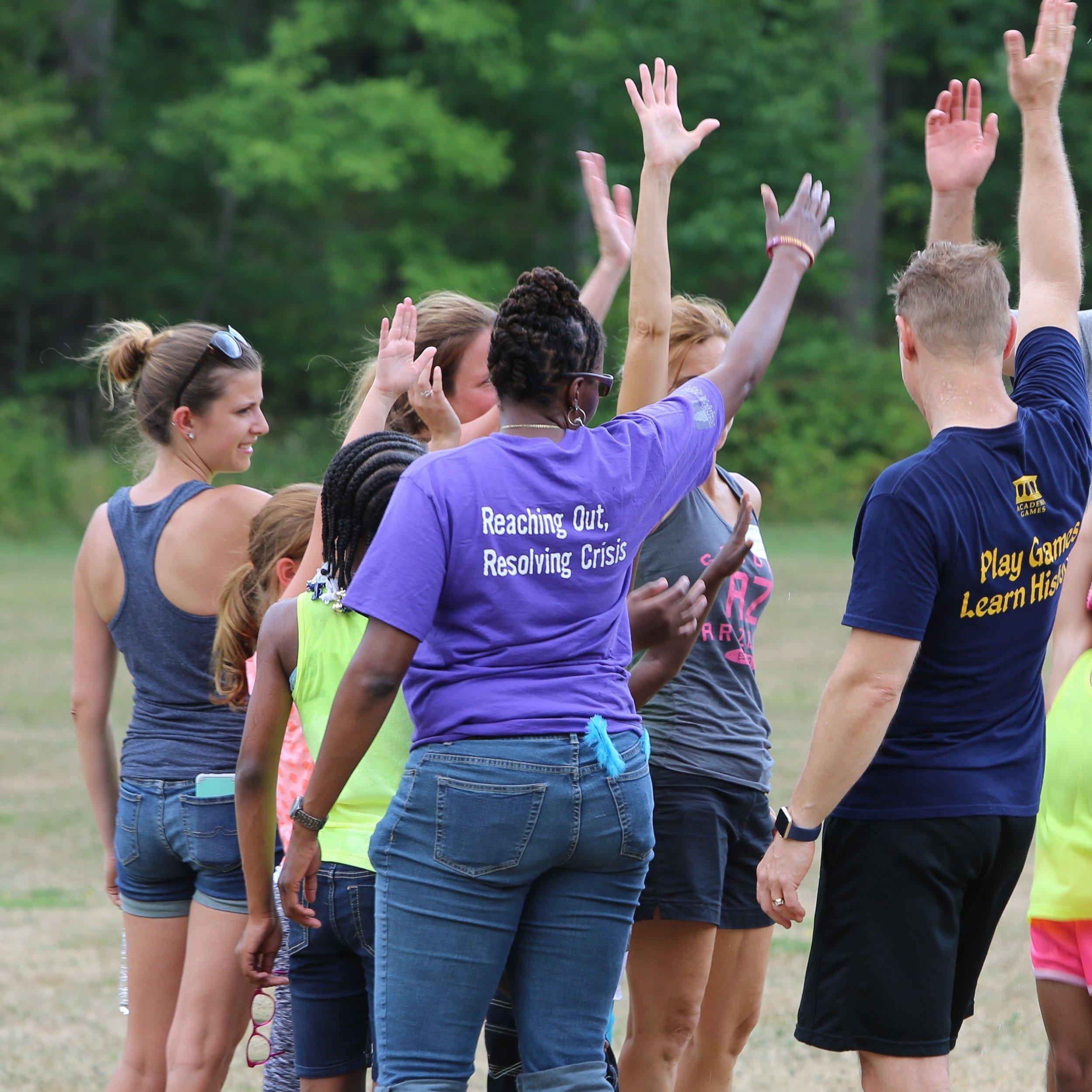
1988 - 1990
1988
Beginning as “Money & Mailboxes,” a pilot project to provide outreach and psychiatric services to individuals experiencing homelessness and mental illness for whom traditional office-based services were not effective.
1989
Mental Health Services for Homeless Persons, Inc. was incorporated as a non-profit 501(c)(3)

1991 - 2000
1991
Projects for Assistance in Transition from Homelessness (PATH): Street outreach for adults who are homeless, have behavioral health challenges, and are resistant to treatment and/or housing options.
1991
Community Psychiatric Supportive Treatment/Core Case Management: Support for individuals moving from homelessness to housing who need assistance to remain stably housed.
1995
Safe Havens: One of the first Safe Havens in the country, a low-barrier housing option for individuals who are homeless and who have been unable to maintain housing in traditional housing environments.
1995
Adult Mobile Crisis Team: Clinicians provide telephone assistance and face-to-face assessments 24/7 for individuals in Cuyahoga County in a behavioral health crisis. In 2013, the program expanded to include online chat and text.
1997
Child Response Team: An expansion of the Adult Mobile Crisis Team, clinicians respond to children in a behavioral health crisis to prevent suicide and promote mental wellness.
1998
Young Adult Housing: Services targeted to young adults ages 18-24 who are homeless. Leading to an array of young adult-specific programs and services in future years.
1999
Children Who Witness Violence: One of the first programs in the country, licensed clinicians’ outreach into the community to provide crisis intervention services to children and adolescents exposed to domestic or community violence.

2001 - 2010
2004
PATH Prison Pilot: An expansion of the PATH outreach team specializing in working with individuals who were incarcerated and homeless. This program evolved into other forensic programs with a focus on assisting formerly incarcerated individuals who need mental health treatment and housing assistance.
2006
Permanent Supportive Housing (PSH): Utilizing the Housing First model to end chronic homelessness, FrontLine provides social services in residents’ homes to promote recovery from behavioral health disorders and support long-term housing stability.
2007
Supported Employment/Individual Placement and Support: An evidence-based practice that supports individuals who have been homeless and have a severe mental illness to achieve competitive employment.
2007
Camp Bridges: A one-day bereavement camp for children who have lost a loved one to homicide, suicide, or other traumatic death.
2007
North Point: Temporary housing program for adults who were working or work ready. In 2017, North Point expanded to emergency housing for young adults (ages 18-24) experiencing homelessness.
2008
Traumatic Loss Response Team: Clinicians provide crisis stabilization and supportive services to families after they have lost a loved one to homicide or suicide.
2009
Coordinated Intake: Entry point to Cuyahoga County’s shelter system for those experiencing homelessness.
2010
Police Co-Responder: Crisis intervention clinicians accompany law enforcement to respond, on-scene when someone is experiencing a behavioral health crisis.

2011 - 2019
2011
Supportive Services for Veteran Families: A nationally recognized program focused on ending veteran homelessness across 13 counties in Northern Ohio. Assisting veterans and their families who are homeless or at risk of homelessness with housing, financial assistance, linkage to health care, and legal services.
2012
Defending Childhood Initiative: Intake, referral, and linkage to treatment for children who have experienced trauma.
2013
Twinkle Shop: An annual event that provides holiday gifts and basic need items to families impacted by homelessness, violence, and other crises.
2013
Integrated Health Clinic: Integrated physical and behavioral health clinic for individuals who were/are homeless and have a behavioral health challenge.
2013
Stricklin Crisis Stabilization Unit: A short-term licensed residential facility for adults in Cuyahoga County experiencing behavioral health crises.
2013
The agency changed its known name to FrontLine Service. The name represents our agency’s unique role in our community and our service philosophy of reaching out to those in crisis to provide the support and services needed for healing and recovery.
2017
Cleveland Mediation Center (CMC): Ohio’s first mediation center merged with FrontLine Service, providing individual & community mediation and training for community members to develop and apply those skills.

2020 - Present
2020
Hope-Link: Emotional support and linkage to ongoing care for individuals after being released from a hospital following a suicide attempt.
2020
COVID-19 Response: The recent global pandemic caused the most acute suffering for individuals in the community with the most complex needs. The agency immediately pivoted, creating a dynamic response plan to ensure continued face-to-face service while preventing the spread of COVID-19.
2020
Pandemic Community Coordination: Addressed the community’s need by coordinating continued service for unsheltered COVID-positive individuals with local hospitals, the Ohio Department of Health, and other community partners.
2021
Diversion Center: In collaboration with partner agencies, FrontLine provides screening for this first-of-its-kind facility in Ohio. The center diverts individuals from police intervention to treatment through referrals from family, friends, or law enforcement.
2022
Supporting Children (Trauma Systems Therapy): The first program model in Ohio for children struggling with regulating behavior after experiencing the loss of a loved one from opioid overdose.
2022
988 Suicide & Crisis Lifeline: Became one of 200+ crisis centers across the country answering the 988 National Suicide & Crisis Lifeline. FrontLine’s 24/7 Crisis staff receive all calls in Cuyahoga County from people contacting the universal entry point of 988.
2024
As of July 2024, the Cleveland Mediation Center (CMC) became its own independent nonprofit organization, legally separating from FrontLine Service.

Accreditations
The Commission on Accreditation of Rehabilitation Facilities (CARF) has awarded to Mental Health Services for Homeless Persons, Inc. (DBA FrontLine Service) three-year accreditation continuously since August 2006 for the following programs:
Case Management/Services Coordination: Adults Mental Health and AOD (Alcohol and Other Drugs/Addictions)
Case Management/Services Coordination: Children and Adolescent Mental Health
Crisis Intervention: Adults Mental Health and AOD (Alcohol and Other Drugs/Addictions)
Crisis Intervention: Children and Adolescent Mental Health
Outpatient Treatment: Adults Mental Health and AOD (Alcohol and Other Drugs/Addictions)
Outpatient Treatment: Children and Adolescent Mental Health
Community Employment Services
FrontLine Service’s Mobile Crisis Team (MCT) earned American Association of Suicidology certification as an approved Crisis Intervention Program in October 2003. MCT is now one of only 150 certified 24/7 crisis response programs in the U.S. and Canada.
The mission of the Ohio Department of Mental Health and Addiction Services (OhioMHAS) is to provide statewide leadership of a high-quality mental health and addiction prevention, treatment and recovery system that is effective and valued by all Ohioans.


















